2019 NAEd/SPENCER POSTDOCTORAL FELLOWS
Rachel Baker, University of California, Irvine
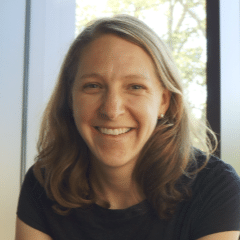
Rachel Baker is an Assistant Professor of Education at the University of California, Irvine’s School of Education. Her work focuses on how institutional, state, and federal policies affect access to, and success in, higher education for traditionally underserved groups. Using experimental, quasi-experimental, and rich descriptive techniques, she has studied: how students conceptualize the process of choosing a major, the effects of statewide transfer policies on community college student success, the effects of socio-economic affirmative action on student sorting, patterns of segregation and sorting in higher education, and the effects of in-class interventions on student success in online courses. Dr. Baker received her Ph.D. in Education Policy from Stanford Graduate School of Education and her BA in Psychology from Dartmouth College.
Structural Barriers to Academic Success: The Case of Complex Curricular Requirements in Community Colleges
Major requirements in college are complex. Research has found that students report being confused when trying to determine which classes they need to take to graduate. Psychologists and behavioral economists have long found that complex decisions lead to worse outcomes, both in terms of non-ideal choices and postponed decisions, and many administrators and policy makers believe that curricular complexity may be partially responsible for community colleges’ low graduation rates. But these kinds of structural barriers have received very little research attention.
In this study, I will examine the effect of the complexity of major requirements on student outcomes. I will do so by calculating three measures of complexity for dozens of majors in California Community Colleges and computing the relationship between these measures and student success and efficiency outcomes. To control for potential biases that could affect my results, I will use two analytic strategies: (1) leveraging the differences in complexity across departments in the same college and across colleges in the same department, and (2) taking advantage of the fact that major requirements, and their inherent complexity, change. Results from my study will provide direct guidance to schools on how to structure major requirements to maximize student success.
Maria Bolsinova, ActNext
Maria Bolsinova is a research scientist at ACTNext based in Amsterdam, the Netherlands. Maria obtained her Ph.D. from Utrecht University in 2016 after which she worked as a postdoctoral researcher at the University of Amsterdam. Her dissertation entitled ‘Simple models and complex reality: Contributions to item response theory in educational measurement’ has been recognized by the dissertation awards from the Psychometric Society and from the National Council on Measurement in Education. Maria has also received the New Assessment Research Award from the Association of Educational Assessment Europe. Her research has been devoted to developing advanced psychometric models for the analysis of product and process data from educational tests and building statistical foundations for measurement in adaptive learning systems. With her research, she aims to develop statistical tools that will improve the quality of educational assessment in practice and help deliver innovative learning and assessment systems.

Statistical Tools to Track a Multitude of Abilities as They Develop
With education’s ambition to move towards personalized learning systems, it is crucially important to in digital learning systems be able to accurately track learners’ development of skills and abilities as they develop during the learning process. While traditional statistical methods are not well-equipped to address this challenge, this project will develop novel flexible and efficient statistical methods that allow for dynamically tracking a large number of interrelated abilities and skills in learners as they develop over time, where the assessment of the learner’s ability levels is updated directly after every new response. The envisioned statistical machinery allows for balancing of the accuracy of the assessment and the speed with which a change in ability is tracked, and can form the statistical basis for the development of a wide range of large-scale online adaptive learning systems. The concrete outcome of the project will be well-tested and open-source statistical software that make these multidimensional analyses possible. By developing the statistical foundations, this project will function as a key stepping stone for the development of personalized learning systems, which requires the statistical machinery for accurately and efficiently tracking abilities to be in place before they can fully be developed, tested, and optimized.
Shanyce L. Campbell, University of Pittsburgh
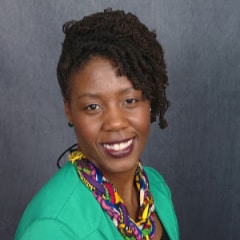
Shanyce L. Campbell is an assistant professor at the University of Pittsburgh School of Education. Her research focuses on understanding how policies and practices influence access to quality learning opportunities for students marginalized by the educational system. Employing quantitative, qualitative, and mixed methods, she explores three institutional factors associated with advancing marginalized students’ opportunities to learn – instructional quality, school-community partnerships, and curriculum. Dr. Campbell’s work has appeared in American Educational Research Journal, Educational Researcher, and Educational Evaluation and Policy Analysis. In 2019, she received the Palmer O. Johnson Memorial Award for the most outstanding article appearing in an American Educational Research Association’s (AERA)-sponsored journal. Dr. Campbell earned her bachelor of science (summa cum laude) in Accounting with a minor in Economics from North Carolina A&T State University, a Historically Black College & University (HBCU). She earned her Ph.D. in Public Policy from the University of North Carolina at Chapel Hill where she was the first Black person and woman to graduate from the program. She was a postdoctoral fellow in the School of Education at the University of Michigan.
A Mixed Methods Study of Teacher Education Programs’ Role in Fostering Candidates’ Equity Dispositions
Teacher education programs (TEP) have recently received a great deal of criticism with calls for more oversight and accountability to ensure that programs are preparing “high-quality” teachers. While much debate centers around the best way to measure program quality, there is little consensus on which aspects of TEPs matter. Arguably, a significant indicator of program success is the candidates’ preparation to work with diverse learners and in diverse settings. However, TEPs continue to struggle with preparing candidates that are responsive to the assets and needs of students marginalized by the educational system in ways that exclude these students from rich learning opportunities. This study employs a multi-campus, mixed methods comparative case study design to (1) better understand how TEPs foster equity dispositions among teacher candidates; (2) investigate whether there are differences in teacher candidates’ equity disposition based on the TEPs orientation towards equity; and (3) contribute to the larger methodological conversation regarding the need for rigorous methods that account for the complexities in designing equity-centered teacher education programs. Findings from this study will provide greater insight into how educators and policymakers can create conditions that foster and sustain candidates’ equity-orientations once they become in-service teachers.
North Cooc, University of Texas
North Cooc is an Assistant Professor of Special Education and a core faculty affiliate in the Center for Asian American Studies at the University of Texas at Austin. His research focuses on inequities at the intersection of disability, race/ethnicity, and language within special education and schools. In particular, he examines unequal opportunities and outcomes for children with disabilities and families navigating the special education system and the challenges of preparing a diverse and culturally responsive teacher workforce. North earned his Ed.D. in quantitative policy analysis in education and Ed.M. in international education policy from the Harvard Graduate School of Education, and B.A. in history and Japanese from the University of California, Berkeley.
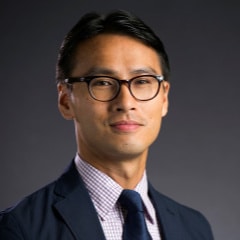
When and Why English Learners Receive Special Education
The overlap between learning difficulties due to limited English proficiency and disability poses critical questions about when English learners (ELs) should receive special education, if at all, and whether disproportionate representation of ELs within special education in later grades reflects greater need or inappropriate identification. Unfortunately, there is limited research on what predicts the timing of services and why some ELs receive special education and not others. In this study, I will (1) determine what grade ELs first receive special education by disability, (2) assess whether early English language skills predict the timing of special education and (3) analyze whether the labeling of students as ELs or not increases the probability of receiving special education. I will examine special education for ELs with longitudinal data on cohorts of students from a school district using an analytical approach that combines discrete time survival analysis and regression discontinuity. From my study, educators will understand the extent to which the timing of special education for ELs is related to academic challenges versus other student or institutional factors. At the policy level, understanding whether EL classification impacts special education participation has implications for changing current practices that rely on labels to provide students with instructional supports.
F. Chris Curran, University of Florida

F. Chris Curran is, starting fall of 2019, an associate professor of Educational Leadership and Policy at the University of Florida’s College of Education. Prior to joining the University of Florida, he was an assistant professor of Public Policy at the University of Maryland, Baltimore County (UMBC) School of Public Policy. He received his Ph.D. in Leadership and Policy Studies with a doctoral minor in quantitative methods from Vanderbilt University’s Peabody College in 2015 and holds a masters in Curriculum and Instruction from the University of Mississippi. Dr. Curran’s research focuses on issues of equity in education with a particular focus on the ways that school discipline and safety contribute to racial disparities in educational outcomes. He also has an active body of research that examines early childhood education, particularly in science. His work has been supported by grants from the National Institute of Justice as well as the American Educational Research Association and has been published in outlets including Educational Evaluation and Policy Analysis, Educational Researcher, AERA Open, the American Educational Research Journal, and Education Finance and Policy. His work has also been featured in a number of media outlets including NPR, Politico, Education Week, and The Atlantic. He blogs actively on topics of school discipline and safety and is a regular contributor to The Conversation. Prior to graduate school, Dr. Curran was a middle school science teacher and department chair.
Ban the Discipline Box? How University Applications that Assess Prior School Discipline Experiences Impact College Acceptance of Youth Disciplined in High School
Research demonstrates the negative and inequitable consequences of exclusionary school discipline, such as suspensions, on student outcomes. While prior work shows that students who are suspended are less likely to attend college, the mechanisms behind this phenomenon are less understood. A recent report suggests that about 75% of post-secondary institutions collect information on prior disciplinary infractions during the college application process and that most use this for admissions decisions. This has led advocates to push for “banning the discipline box” on college applications. This proposed study will leverage nationally representative data along with primary data collected on the historical use of such discipline boxes to assess its impact on disciplined students’ likelihood to apply, be accepted at, and receive financial aid at institutions of higher education. Using a student and post-secondary institution fixed-effects approach, the study will address a number of the sources of selection bias that have characterized prior work while providing the first empirical evidence on the effects of the college admissions discipline box. Doing so will both expand the research base on the long-term impacts of high school discipline while also providing actionable information that may inform post-secondary institution’s use of discipline boxes on applications.
Leah Durán, University of Arizona
Dr. Leah Durán is an Assistant Professor of Teaching, Learning and Sociocultural Studies at the University of Arizona. She is former elementary school teacher who worked in bilingual and ESL classrooms in Texas. Her research focuses on bilingualism and biliteracy in young children, and the design of literacy pedagogies for culturally and linguistically complex classrooms.

From Everyday Language Practices to Pedagogies of Biliteracy
The educational outcomes of bilingual students in U.S. schools suggest that they are poorly served by the most common educational practices. This likely stems both from inadequate instruction and from the tendency to perceive bilingual students from a deficit perspective: as disadvantaged by their bilingualism (Bartolomé, 1994). However, students’ bilingualism can instead be recognized as an advantage, one which provides them with both metalinguistic insights and the potential to become biliterate: capable of using, creating and understanding text in two or more languages. While many agree that this is a worthwhile goal, there is still relatively little guidance for teachers who wish to support their students’ biliteracy.
Drawing on the tradition of cultural modeling (Lee, 1995;1997; 2000: Orellana & Reynolds, 2008; Martinez, 2010), this study proposes studying the language practices of bilingual children, identifying areas where their language practices reflect embodied knowledge analogous to literacy skills and standards, and then co-designing and evaluating approaches to literacy teaching which could build on this knowledge. Through a formative/design methodology, this study aims to generate new understandings of ways that teachers can leverage bilingual students’ linguistic abilities to support their literacy learning in two languages.
Alex Eble, Teachers College, Columbia University

Alex Eble is an Assistant Professor of Economics and Education at Teachers College, Columbia University. His research focuses on two core areas. In the first research area, he works to understand how children form beliefs about their own ability, and how this affects their human capital development. In this work, he pairs theoretical models of the formation of beliefs with causal empirical analysis to show how early exposure to erroneous messages such as gender bias can reduce human capital investment and harm individuals’ later life outcomes. In the second research area, he works to identify, evaluate, and study the scalability of potentially high-leverage policy options to raise learning levels in the developing world. This work draws on insights from fieldwork and experience as a development practitioner in China, The Gambia, Guinea Bissau, and India. He holds a Ph.D. in economics from Brown University, where he was a National Science Foundation Graduate Research Fellow; an MSc in Development Studies from the London School of Economics; and a BA in economics and East Asian languages and cultures from Indiana University, Bloomington, where he learned to read, write, and speak Mandarin Chinese.
Measuring representations of gender and race in children’s content and understanding their impact on inequality in educational outcomes
As a child goes through life, her beliefs are shaped by what she comes in contact with. This affects what she sees as her strengths and weaknesses, and what paths she thinks hold more or less promise for her future. A large body of research shows that bias – the notion that one group defined, for example, by gender, ethnicity, or sexuality, is inferior to another on some dimension – harms children through affecting their beliefs about themselves as well as their effort in school and hobbies. Because learning builds on itself, small differences in enthusiasm or effort induced by bias can compound over time and have large negative consequences later in life. In this project, I will further our understanding of the transmission of gender bias via the early sources of information a child comes in contact with. First, I will use a novel method to to quantify the extent of gender bias the child encounters early in life. Then, using modern causal inference techniques and a large administrative data set, I will estimate how increased exposure to such bias affects her performance in school and beyond.
Emma Elliott-Groves, University of Washington
Dr. Elliott-Groves is an incoming assistant professor in the Department of Learning Sciences and Human Development in the College of Education at the University of Washington. She holds both a Ph.D. in Educational Psychology and a Master of Social Work in Children, Youth, and Families. Much of her research centers on understanding the meanings and explanations of suicidal behavior from the perspective of Indigenous peoples. Her work grows from ethical frameworks generated by Indigenous and place-based knowledges and practices to create process-centered approaches that illuminate Indigenous pathways toward collective livelihood. By employing a strengths-based approach to recovery, Dr. Elliott-Groves rigorously engages youth, families, and communities in the development of integrated behavioral health interventions to address complex social issues. As an enrolled member of the Cowichan Tribes who was born and raised in the community, Dr. Elliott-Groves is currently partnering with her home community to design programming to strengthen its physical, mental, intellectual, and cultural health. The interdisciplinary intersections of her research include contemporary Indigenous issues; culture, learning, and human development; and trauma, prevention, and recovery.

Storying sacred geographies: Developing an Indigenous and place-based community assessment
First Nations’ peoples in Canada have made and continue to make rich and lasting contributions to contemporary society. By identifying strategies and resources that promote their own health and wellbeing, they continue to thrive and ensure their survival across time, despite almost 300 years of attempted physical and cultural decimation. The proposed research study strengthens the research capacity within one First Nations’ community, Cowichan Tribes on Vancouver Island, British Columbia by engaging Indigenous and place-based knowledges and practices to collaboratively develop an Intergenerational Community Assessment. Using land as pedagogy, Elliott-Groves’ project will engage Cowichan elders, cultural knowledge keepers, and community members of all ages in walking their traditional homelands to identify local systems of relationality that ensure individual and collective livelihoods. In doing so, they will collaboratively conduct a place-based, community power analysis that aims to illuminate their specific needs, and thus propose collective directions forward. Emerging from local knowledge, this work is intended to provide a model for assessing community needs and resources by considering all relevant factors: social, historical, cultural, and political. With land at its core, this project seeks to generate theory and knowledge, where meaning is derived through a consensual and responsible web of interdependent relationships that literally emerge from the ground up.
Hilary Falb Kalisman, University of Colorado
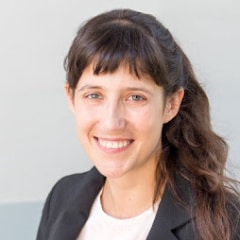
Hilary Falb Kalisman is an Assistant Professor of History and Endowed Professor of Israel/Palestine Studies at the University of Colorado Boulder. Her research interests include education, colonialism, state and nation building in Israel/Palestine as well as in the broader Middle East. Her first book manuscript, “Schooling the State: Education in the Modern Middle East” uses a collective biography of thousands of public school teachers across Israel/Palestine, Iraq and Transjordan/Jordan to trace how the arc of teachers’ professionalization correlated with their political activity, while undermining correspondence between nations, nationalism and governments across the region. She has received fellowships from the American Council of Learned Societies, the National Academy of Education, the American Academic Institute in Iraq as well as the International Institute of Education, among other organizations. Dr. Kalisman has recently published articles in The Jerusalem Quarterly and Histoire De l’éducation. She holds a B.A. from Brown University and a Ph.D. from the University of California Berkeley.
Standardized Testing: An Imperial Legacy of the Modern Middle East
This project investigates one of the most durable, pervasive, and understudied legacies of British imperialism in the Middle East: school examinations. “Standardized Testing: An Imperial Legacy of the Modern Middle East” uses Britain’s Middle Eastern mandates to underscore the colonial origins of standardized testing and its perceived value as a universalizing measure of proficiency. It argues that the mandate governments viewed testing as a means of suppressing antiimperial politics. Locals fought to keep and expand the tests, viewing exams as an international metric of academic prowess and often intelligence. This project shows how educational methods become globalized, and how local tensions and agreements regarding imperial policies shaped knowledge and subject formation.
Jeremy E. Fiel, University of Arizona
Jeremy E. Fiel is an Assistant Professor of Sociology at the University of Arizona. He was a high school science teacher and coach before earning his Ph.D. in Sociology from the University of Wisconsin-Madison. Jeremy’s research uses quantitative methods and sociological theory to examine stratification processes, mostly related to racial/ethnic segregation and intergenerational educational stratification. He is particularly interested in exploring the causes and consequences of contemporary school segregation.

Can Democratizing Educational Opportunities Reduce School Segregation?
What underlying forces drive contemporary school segregation, and how can policymakers address segregation and related inequalities in the current political climate? This project seeks answers to both questions, using comparative interrupted time series analyses to examine the unintended effects of automatic admissions policies (AAPs; e.g., the Texas Top Ten Percent Plan) at the college level on racial segregation at the high school level.
One possibility is that segregation is partly driven by unequal competition for school-based educational opportunities. If so, changing the distribution of opportunities across schools may alter sorting processes in ways that exacerbate or ameliorate segregation. Because AAPs redistribute college admissions slots in an egalitarian way that weakens the link between high school racial composition and perceived opportunities, AAPs may reduce segregation. This could, however, reduce the intended benefits of AAPs on diversity in postsecondary admissions. Alternatively, segregation may be driven more by efforts to maintain racial and ethnic boundaries, in which case redistributive policies like AAPs may not reduce segregation. They could, however, provide avenues to reduce racial disparities in school-based opportunities despite segregation. This project hopes to adjudicate among these hypotheses to further our understanding of segregation and our ability to address racial/ethnic inequality through policy.
Cristina Groeger, Lake Forest College
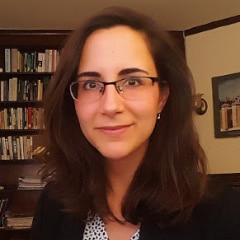
Cristina Groeger is an Assistant Professor in the Department of History at Lake Forest College. She completed her Ph.D. in History at Harvard University in 2017. Her scholarship focuses on the historical construction of work, education, and labor markets in the modern U.S., and how these processes have given rise to a society with one of the highest levels of social inequality across the Global North. She teaches courses on U.S. urban history, the history of education, immigration, gender and sexuality, social movements and inequality. She received her A.B. from Harvard College in 2008 with a concentration in Social Studies. Before beginning graduate school, she was a high school history teacher in Bethlehem, Pennsylvania. Her work has appeared in the History of Education Quarterly, the Journal of Urban History, the Journal of the Gilded Age and Progressive Era, and the New England Quarterly.
Paths to Work: Credentialing Inequality in the United States
Paths to Work: Credentialing Inequality in the United States examines how expanding formal education in the modern United States, often hailed as the primary road to opportunity, became a new terrain on which inequalities were remade and legitimated. Using quantitative data analysis and traditional archives, Paths to Work traces the transformation from workplace-based training in the nineteenth century to school-based training in the twentieth century in the city of Boston, illuminating the role of education in shaping the particular form of the American welfare state and capitalist economy. While grassroots demand fueled educational expansion that allowed women and second-generation immigrants to enter growing sectors of work, elites used educational credentials to control access to the highest managerial and professional positions. This new historical narrative reorients the focus of contemporary inequality scholarship from the “turning point” of the 1970s to the profound shift a century earlier.
Matthew Hirshberg, University of Wisconsin-Madison
Matt Hirshberg is a postdoctoral research associate at the Center for Healthy Minds, University of Wisconsin Madison. He received his Ph.D. in Educational Psychology from the University of Wisconsin Madison. Matt also has an M.Ed. from Lesley University and was a middle school teacher before earning his doctorate. His research is animated by two central questions: What qualities underlie personal and professional accomplishment and overall well-being? And how can these qualities be systematically developed? Matt is especially interested in the application of these questions within educational contexts, for both students and teachers. His research has involved observational studies to estimate the relationships between qualities, competency, and well-being, development of novel measures to better assess key qualities, and intervention research using contemplative techniques such as mindfulness and loving-kindness meditations to examine whether qualities identified as important can be systematically developed. Matt’s research is intended to inform educational policy and practice so that educational systems can realize equitable and beneficial outcomes at all levels.

Understanding the Qualities of Effective Teachers
What are the individual differences that predict effective teaching? The surprising but honest response is that we really don’t know. Recent advances in educational sciences have operationalized the types and quality of teacher-student classroom interactions that promote student learning. A substantial collection of studies link the materialization of high-quality interactions to a range of salutary teacher and student outcomes. Although these advances intimate, they do not directly reveal the individual teacher qualities that underlie effective teaching. The proposed research will use covariate adjusted Hierarchal Linear Models to estimate teacher impacts on student achievement outcomes. In these models, the intercepts (i.e., average student learning gain on the outcome for each teacher) are allowed to vary by teacher, representing the variance in teacher effects on student learning after statistically controlling for a wide array of confounding inputs. Extending previous research, teacher participants will complete a comprehensive assessment battery of the qualities theorized to be important to teaching effectiveness. In a stepwise fashion, I will then enter these variables as teacher-level predictors to estimate the amount of variance in intercepts each quality explains, providing novel insight into the individual differences underlying teacher effectiveness. Results from this study will inform new approaches to teacher education and professional development by identifying the teacher qualities most strongly associated with salubrious outcomes for students and teachers.
W. Christopher Johnson, University of Toronto
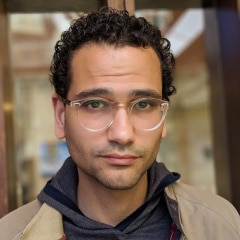
W. Chris Johnson is an interdisciplinary scholar of black diasporas. His research uncovers transnational histories of gender and black liberation. This work situates mobility, kinship, and decolonial education projects as adhesives that knit together disparate but interconnected revolutionary movements across Africa, the Caribbean, North America, and the United Kingdom during the 20th century. Johnson grew up in Lowndes County, Alabama, where he first learned about Black Power. His essays have appeared in Gawker, Gender & History, the Caribbean Review of Gender Studies, the International Journal of Francophone Studies, and the edited collection Black British History: New Perspectives. He holds an A.B. in English and History from Vassar College, an M.F.A. in Creative Writing from Indiana University, and a Ph.D. in African American Studies and History from Yale University. In addition to these institutions, Johnson’s research has been supported by the Ford Foundation, the American Historical Association, the Marcus Garvey Foundation, and Colorado College, where he was a Riley Scholar-in-Residence. He is an assistant professor in the Women & Gender Studies Institute and the Department of History at the University of Toronto.
Black Power for the Third World: Decolonizing Pedagogies, Revolutionary Transnationalism, and Britain’s Black Liberation Front
This study uncovers a broad range of education projects designed by members of the Black Liberation Front (BLF) to safeguard the welfare of African, Asian, and Arab people in Britain and to ensure the destruction of global imperialism. Founded in North London in 1971, the BLF was a Third World revolutionary socialist organization that provided education, vocational training, employment and empowerment to Black British people for more than two decades. A small, clandestine collective of first and second-generation immigrants from Africa, Asia and the Caribbean, the BLF emerged at the intersection of diasporas, and built self-help social welfare programs within Britain for the vulnerable and neglected—particularly black youth, unemployed and homeless populations, and prisoners and formerly incarcerated people. Globally, the BLF leveraged their position as migrant exiles living in the metropole to support indigenous liberation movements in Africa, Asia, and the Caribbean through education, consciousness raising, and material aid. For self-described “Third World minorities” ensnared in a global, imperial web of anti-black discourses and practices, the BLF turned to education as the first step toward dismantling the logics of settler colonialism, and enacting forms of self-governance that could usher a postcolonial future.
Maryam Kashani, University of Illinois at Urbana-Champaign
Maryam Kashani is an Assistant Professor in Gender and Women’s Studies and Asian American Studies and a 2019-21 Faculty Fellow of the Unit for Criticism and Interpretive Theory at the University of Illinois Urbana-Champaign. A filmmaker and anthropologist, her research is concerned with the lived experience of Muslims in the United States. Her book project Medina by the Bay is based on ethnographic research and filmmaking conducted amongst Muslim communities in the greater San Francisco Bay Area and at a Muslim liberal arts college in Berkeley, California. Her films and video installations have been shown at film festivals, universities, and museums internationally and include things lovely and dangerous still (2003), Best in the West (2006), and Signs of Remarkable History (2016). Her recent publications include “Habib in the Hood: Mobilizing History and Prayer towards an Anti-Racist Islam” in Amerasia (2018) and “The Audience Is Present: Invocations of El-Hajj Malik El-Shabazz by Muslims in the United States” in With Stones in Our Hands: Reflections on Racism, Muslims, and U.S. Empire, edited by Sohail Daulatzai and Junaid Rana (University of Minnesota Press, 2018).

Medina by the Bay: the Ethics of Knowledge, Difference, and Survival in Bay Area Islam
Islam is often discussed as something that arrives in (and threatens) the United States from a historic and geographic elsewhere. This project examines Muslim histories from the Black Panther Party, the Nation of Islam, and 1970s counterculture, to the more recent establishment of a Muslim liberal arts college, schools, and non-profits, to demonstrate how the San Francisco Bay Area is not only a destination, but a source for Islamic knowledge and Muslim ways of being. Based on eight years of ethnographic fieldwork and filmmaking in multiracial and multiethnic Muslim communities, this book project and related website consider how Muslims mobilize Islam as an ethical and epistemic framework to negotiate issues of difference, social justice, and survival. This project demonstrates how socioeconomic forces and geopolitical agendas impact which Muslim educational institutions and forms of Muslim life flourish and which are subject to precarity. This study argues for a deeper consideration of local histories, politics, and geographies in community-driven education projects while also demonstrating how schools and informal learning environments are related structurally – through their proximities, the transit of people within them, and state interventions that shape efforts for autonomy, assimilation, authority, and survival.
Yader R. Lanuza, University of California, Santa Barbara

Yader R. Lanuza is assistant professor of sociology at the University of California, Santa Barbara. His research focuses on the causes and consequences of social inequality, especially in the context of education. He is particularly interested in understanding how the pre-migration social class backgrounds of immigrant parents (immigrant selectivity) influence the schooling experiences of their children in the United States and shape broad nation-wide trends in educational inequality. Dr. Lanuza’s scholarship has been published in the American Sociological Review, International Migration Review, and Journal of Marriage and Family, among others. He has been a fellow of the Ford Foundation and the American Sociological Association’s Minority Program. Dr. Lanuza holds a Ph.D. in sociology from the University of California, Irvine, an M.A. in sociology of education from New York University, and a bachelor’s degree from Hampshire College.
Immigrant Selectivity and School Readiness in America
Although income-based educational inequality endures across the educational pipeline, there is one exception: achievement gaps at school entry (hereafter school readiness) are decreasing. Concurrently, the presence of children of immigrants is increasing in American schools. In this project, I examine whether increasing immigrant presence is responsible for decreasing income-based school readiness gaps. Using restricted, nationally representative data from Early Childhood Longitudinal Studies in 1998 and 2010 and Barro-Lee international education data, I examine whether and how immigrant parents’ pre-migration socioeconomic status (immigrant selectivity) impacts the academic achievement of their children at school entry. Many parents with middle- and upper-class socioeconomic status in their countries of origin suffer downward mobility and (sometimes) poverty. Nevertheless, these parents possess noneconomic middle- and upper-class orientations, proclivities, and practices that serve as resources that boost the academic achievement of their children, including those in low-income households. Consequently, these children may increase the average school readiness scores among low-income children, which, in turn, may decrease income-based school readiness inequality between 1998 and 2010. The case of immigrant families helps us understand how social class matters for children’s educational performance in the absence of abundant economic resources, and, how these processes, in turn, impact income-based school readiness inequality in the United States.
Maureen MacLeod, Mercy College
Maureen MacLeod is an Assistant Professor of History at Mercy College in Dobbs Ferry, NY where she specializes in European history with a focus on women’s and education history. At Mercy, a designated Hispanic serving institution, she mainly works with first-generation college students, teaching European, gender, and Middle Eastern History. Prior to teaching at Mercy, she received her Ph.D. from Florida State University, M.A. from Wayne State University, and B.A. from Michigan State University. Her current research focuses on the development and utility of girl’s education in early nineteenth-century France. Her work has been supported by the Walbolt Dissertation Research Fellowship and Dr. Fay T. and Dennis Greenwald, Esq. Faculty Grant.

Le bel esprit: Creating Female Independence through Education in Early Nineteenth-Century France
The proposed research focuses on female education at the Maison d’éducation de la Légion d’honneur during the Napoleonic Empire in France. This study argues that the female students were able to gain agency through their unique educational experience, which allowed them to frame their own future. It also maintains that the opportunity for women to engage in the public sphere and embrace an independent lifestyle occurred earlier than many historians argue, in the beginning of the nineteenth century, largely because of the Napoleonic era educational institutions. This research also examine the curriculum and pedagogy of the school as well as students’ independent endeavors to harness their education for their own purposes. By examining student dossiers from little-explored archives of the Napoleonic era, this study traces the students throughout their lives, recording their accomplishments, which were not the norm for women in early nineteenth-century France.
Leya Mathew, Ahmedabad University
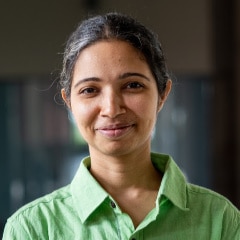
Leya Mathew is an Assistant Professor in the Social Sciences division of the School of Arts and Sciences at Ahmedabad University. She has a Ph.D. in Education from the University of Pennsylvania. Her research is focused on understanding the socio-cultural transitions that have accompanied economic liberalization in India. She has examined the transitions of liberalization across multiple sites in her dissertation and postdoctoral work. Her dissertation explored non-elite private English schooling as a socio-political expression of aspiration in a new consumer society. This project was awarded an AIIS (American Institute of Indian Studies) Junior Fellowship and a NAEd/Spencer Foundation Dissertation Fellowship. Her work has been published in Anthropology and Education Quarterly and TESOL Quarterly. Her post-doctoral work at the National Institute of Advanced Studies, Bengaluru (2016-18) focused on the emergence of middle-class feminisms in the context of expanding employment opportunities for women in science and technology.
Shifting Science Identities and Appropriate Femininities at a Pharmacy College in India
With long established ideals of “proper” Indian womanhood now in transition, from modesty and home centeredness to assertive consumerism and aspirations for the self, this project will examine how shifts in dominant femininities affect higher education in science in India. Established in 1947, the same year that the nation gained independence from colonial rule, and currently patronized by a diverse group of students, the AG College of Pharmacy offers the longitudinal and cross-sectional depth necessary for this study. The project will compare how expectations of 1) demureness in the post-independence period and 2) assertion in the post-economic reform decades impact the educational opportunities and experiences of diverse women students, especially, non-elite, first-generation women students. The historic component of the inquiry is geared towards examining founding discourses about science, science people, and women; shifts in diversity over seven decades; and historical science identities and appropriate femininities. Following, an ethnographic inquiry will document present-day science identities and consumerist femininity and how these impact the educational aspirations and experiences of differentially positioned women students. This comparative inquiry of historically specific dominant femininities in a postcolonial context under radical transition will complicate assumptions of science education research, much of which is based on Euro-American experiences.
Keon M. McGuire, Arizona State University
Dr. Keon M. McGuire is an Assistant Professor of Higher and Postsecondary Education in the Mary Lou Fulton Teachers College and a Faculty Affiliate with the School of Social Transformation. Dr. McGuire’s research agenda focuses on the status and experiences of minoritized students across postsecondary educational settings. Drawing from Africana and other interdisciplinary frameworks, Dr. McGuire examines how race, gender and religion shape minoritized college students’ identities and their everyday experiences. Additionally, Dr. McGuire investigates the ways racism, sexism, and heteronormativity undermine the experiences of minoritized college students as well as they ways students resist and respond to such marginalization. His work has been published in venues such as The Journal of Negro Education, Journal of College Student Development, Teachers College Record, Men & Masculinities and The Review of Higher Education. Dr. McGuire holds a joint Ph.D. in Higher Education and Africana Studies from the University of Pennsylvania and a BA in History from Wake Forest University. Dr. McGuire is also a 2019 American College Personnel Association (ACPA) Emerging Scholar.

Black Male Feminist Research and Learning Community
To date, much of the research concerning Black (largely cisgender and heterosexual) male raced-gendered identities focuses on the ways Black men adhere to heteronormative and hegemonic expectations of manhood. This line of scholarship highlights the ways pre-college socialization, peer influence, and ecological contexts inform Black cisgender college men’s embodiments of masculinities. Theoretically, while scholars have suggested that there are productive possibilities for Black cisgender college men who engage with Black feminist perspectives, what is not known is how educators might pedagogically – through exposure to content and instructional decisions – disrupt misogynist or homophobic behaviors and attitudes that do exist. Moreover, most writings by Black men who engage and closely identify with Black feminism is reflective in nature and comes from Black men who are well into adulthood. While not inherently wrong, empirically speaking, we do not know if Black feminism holds the same possibilities for young adults as it does for more mature Black men. As such, the purpose of this study is to explore how pedagogical practices grounded in Black feminist thought might influence Black college men’s perspectives and actions concerning the intersection of patriarchy, racism, classism, and homophobia. Guided by participatory action and community-based research methodologies, this study will examine the experiences of Black undergraduate college men in a Black male feminist research and learning community over the course of one year. This project will make a significant contribution to the field by moving beyond simply critiquing heteronormative masculinities and instead offer theoretical, empirical, and pedagogical insights into transformative possibilities.
Gabrielle Oliveira, Boston College
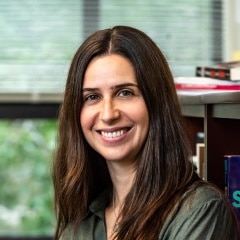
Gabrielle Oliveira is assistant professor of foundations of education at the Lynch School of Education and Human Development at Boston College. Her research focuses on immigration and mobility—on how people move, adapt, and parent across borders. Her expertise includes gender, anthropology, transnationalism in Latin America. Merging the fields of anthropology and education through ethnographic work in multiple countries, Oliveira also studies the educational trajectories of immigrant and first and second generation children.
Oliveira received her bachelor’s degree in her native Brazil and earned her master’s and doctoral degrees from Teachers College and Columbia University, where she was also a National Academy of Education/Spencer Foundation Dissertation. Oliveira has recently published Motherhood Across Borders: Immigrants and Their Children in Mexico and New York (2018) by NYU Press that won the Inaugural Outstanding Book Award in Ethnography at the Penn Ethnography Forum. Oliveira was also a 2018 Concha Delgado Gaitan Presidential Fellow awarded by the Council of Anthropology and Education.
She is also the co-founder of the group Colectiva Infancias, a Latin America group of women scholars who study migration of children across the Americas. The group was recently awarded a grant by The National Geographic Foundation to assemble an online mosaic of migrant children’s experiences. Oliveira lives in Massachusetts with her husband and two children.
“Now We Are Here”: The Impacts of Forced Family Separation at the U.S.-Mexico Border on Children’s Education Experiences
Family separation policies’ impacts on children’s education are the critical issue of our time. Some school districts are receiving more immigrant students than usual due to children who were separated from their parents at the border. This ethnographic research project asks: how current forced family separation practices impact children’s educational experiences? How do teachers and administrators respond to their needs? The instability children and parents faced during separation is compounded by parents and other family members, exposure to violence, housing and food insecurity, uprooting from familiar environments, interrupted schooling, prejudice and discrimination, and anxiety about the future. Given the sheer number of school-age children who are entering U.S. education systems, there is a necessity for both researchers and practitioners to understand, assess and develop new practices that not only support students in the classroom, but entire families in communities. This study is rooted in the anthropology of education and the sociology of immigration and education traditions. Immigrant education experiences in the U.S. have been widely researched; arguments about trajectories that focus on “acculturation,” “integration,” “incorporation,” and “assimilation” have long dominated the sociological narratives of immigrant life in the U.S. Through my ethnographic fieldwork I am able to identify the raw, everyday lived experiences of children and parents who were forcibly separated at home and in their communities and how these experiences are translated into the classroom and in schools. This ethnography is focused on ten families and children from Central and South America who were reunified between July and October of 2018. Children are currently enrolled and attending two different elementary schools in Massachusetts where the study has been conducted.
Yasmin Y. Ortiga, Singapore Management University
Yasmin Y. Ortiga is an Assistant Professor of Sociology at Singapore Management University. She studies how the pursuit of knowledge and “skill” shapes people’s migration trajectories, changing educational institutions within both the countries that send migrants, as well as those that receive them. Her previous research investigated how Philippine higher education institutions attempt to produce workers for “export,” altering local curriculum and school structures in order to educate students for the anticipated needs of foreign employers. She recently published the book, “Emigration, Employability, and Higher Education in the Philippines” (Routledge). Her work has also been published in the British Journal of Sociology of Education, Globalizations, and Discourse: Studies in the Cultural Politics of Education.
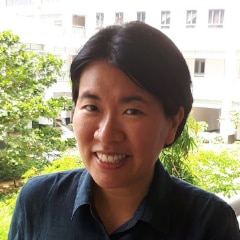
Unlikely Faces in Unlikely Places: International Student Mobility and the Rise of the ‘Third World’ Education Hub
Studies on international student mobility have mainly centered on the experiences of prestigious universities located in wealthy nations like the US and Australia. Largely ignored is how institutions in the Global South also take advantage of worldwide demands for international degrees, catering specifically to students with less economic and social capital. This qualitative study investigates the emergence of an unlikely education hub in the Philippines, a country with a reputation for sending migrant workers overseas, yet is relatively unknown as a destination for international students. In recent years, Philippine universities have seen an influx of students from India, Iran, and the US. These students enter low-tier, for-profit universities offering degrees for professions where Filipino migrant workers are highly represented (eg. nursing), often with the promise of also finding work in a global migrant labor market. This project investigates the structural barriers and social networks that channel international students towards these programs. I also examine how Filipino educators adjust to these students’ presence, altering school structures in appealing to their needs. In doing so, this project seeks to highlight a significant, yet often ignored segment of the global higher education market. I argue that it is by investigating student mobility to seemingly unlikely destinations that we better understand the diverse ways that global changes affect the purpose of higher education, beyond the conventional models that have dominated current literature.
Martina Rau, University of Wisconsin-Madison

Martina Rau is an assistant professor at the University of Wisconsin – Madison’s Department of Educational Psychology, with an affiliate appointment in Computer Sciences. Her research focuses on understanding how students learn STEM content with visual representations and to examine how educational technologies can help them use visuals more effectively. To this end, she uses a multi-methods approach that integrates learning outcome measures with process-level measures of learning. She received her doctorate degree from the Human-Computer Interactions Institute at Carnegie Mellon University. She has received an NSF CAREER grant, an award from the Siebel Scholar Foundation for academic excellence and leadership, and best paper awards at the International Conference on Artificial Intelligence in Education and the International Conference on Educational Data Mining. Dr. Rau also has a master’s degree in Psychology.
Collaboration Support for Learning with Visual Representations in Undergraduate Chemistry
Many students have difficulties interpreting visuals. It is well established that collaboration can help students learn with visuals. Prior research has focused mostly on how verbal communication can help students reason about how visuals show complex concepts. However, we know little about how nonverbal communication, such as pointing gestures, help students learn with visuals. As part of this project, Dr. Rau will investigate how supports for verbal and nonverbal communication affects students’ learning with visuals. To this end, she will conduct a study with chemistry students learning about molecular geometry with ball-and-stick models and Lewis structure drawings. This study will help us understand how collaboration can enhance learning through verbal and nonverbal communication processes.
Ranita Ray, University of Nevada
Ranita Ray is assistant professor of Sociology at the University of Nevada, Las Vegas. Ray is a critical feminist ethnographer interested in interrogating established ways of thinking about education, children and youth, poverty, and urban inequalities through interdisciplinary research, and by underlining the intersections of gender and racial dominance. Her book, The Making of a Teenage Service Class: Poverty and Mobility in an American City (University of California Press, 2018), challenges common wisdom that targeting “risk behaviors” among Black and brown youth such as drugs, gangs, violence, and teen parenthood is key to breaking the cycle of poverty. Ray’s research has been published in Social Problems, Journal of Contemporary Ethnography, The American Journal of Bioethics, Sociology Compass, as well as other edited volumes. Ray has received funding for her research from the National Science Foundation, and she is also a Racial Democracy, Crime and Justice Network Research Fellow.

Gender Inequality in Schools: The Transition from Elementary to Middle School and the Emergence of the Gender Gap
School is one of the only institutional contexts where girls tend to outperform boys. This gender gap deepens in predominantly economically marginalized and Black and Latinx communities. While this gender gap in academic achievement has gained attention in the media leading to various misguided conversations around “reverse gender discrimination” and “biological sex differences,” few social scientists have theoretically and empirically examined its complexities in K-12 U.S. educational settings. And those who have studied this gender gap tend to focus on gendered socialization patterns and peer culture. These scholars argue that schools create feminine learning contexts, and they further contend that Black and Latino boys embrace local adolescent “oppositional cultures” that rewards masculinity and resistance to schooling. Are schools indeed failing boys? I argue the role of schools is more complex for the state intersects with the gender regime to perpetuate racial dominance. My project, set in the city of Las Vegas (one of the most underperforming school districts in the country), draws on longitudinal and multi-contextual ethnography and archival research to examine the intersections of state, gender, and race to first underline the configuration of this gender inequality and then highlight how schools foster gender inequality early in the life course. Combining insights from sociology of education, women-of-color feminisms, developmental psychology, education policy research, and critical theories of race, my analysis offers a feminist of color intervention about the gender gap in academic achievement through an empirically motivated theorization of the relationship between gender, race, and schooling.
Maribel Santiago, University of Washington
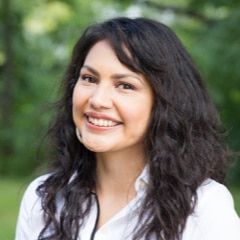
Dr. Maribel Santiago is currently an Assistant Professor in the College of Education at the University of Washington. She specializes in the teaching and learning of race/ethnicity in K-12 history classrooms, specifically how people in the U.S. collectively remember the expereinces of communities of color, and the consequences of such depictions. Her current work centers on the production and consumption of Latinx social studies: what students, policy makers, and educators learn about Latinx communities, and how they engage in mediated actions to conceptualize Latinx experiences. Dr. Santiago leads the History TALLER (pronounced tah-yĕr) research group dedicated to exploring the Teaching And Learning of Language, Ethnicity, and Race (TALLER). Dr. Santiago earned a Ph.D. in History/Social Studies Education and an M.A. in History, both from Stanford University. She also received a M.Ed. and B.A.s in History and Chicana/o Studies from UCLA. Dr. Santiago was the 2016 recipient of the National Council of the Social Studies Larry Metcalf Exemplary Dissertation Award. Her work has been published in Theory & Research in Social Education, Cognition and Instruction, and other venues. Dr. Santiago will join the College of Education at the University of Washington, Seattle in January 2020.
A Tale of Four Cities: A National Comparative Study on the Teaching of Latinidad in K-12 Social Studies Classrooms
Latinx students comprise a quarter of the children in the U.S., making them the largest ethnic group in K-12 schools. This presents educators with two urgent needs. The first is preparing educators to teach Latinx students about their contributions to the U.S. to validate their racial/ethnic and cultural identities. The second is ensuring that all students have a greater understanding of the differing experiences within the Latinx diaspora. For example, curricular materials often omit the Indigenous and African roots that account for Latinx racial diversity. This gives the impression that Latinxs are a monolith, ignoring how some have benefited from being designated White, while others are discriminated for their Indigenous and African ancestry.
In an effort to present a more nuanced understanding of Latinidad, this study focuses on 12 teachers who, through previous surveys and interviews, were identified as integrating Latinx social studies into their classrooms. Comparing teacher observations in Los Angeles, New York, Chicago, and Orange County (Florida), this project analyzes how these educators integrate Latinx topics into their social studies classrooms. These school districts represent the three largest Latinx-origin groups in the U.S.: Mexicans, Puerto Ricans, and Cubans, allowing for comparisons on how educators address regional and Latinx intra-group differences. This study is the first large-scale comparative study on Latinx social studies with an aim to inform practice at a national level. This work will establish a foundation for understanding the content and strategies social studies educators’ should employ in teaching the complex racial/ethnic realities of Latinxs.
Jon Shelton, University of Wisconsin-Green Bay
Jon Shelton is associate professor of democracy and justice studies at the University of Wisconsin-Green Bay, where he teaches courses on American education, labor, and politics. His first book, Teacher Strike! Public Education and the Making of a New American Political Order (University of Illinois Press, 2017), explains how contentious urban teacher strikes in the late 1960s, 70s, and 80s highlighted fundamental contradictions in the New Deal order, an important part of the explanation for the realignment of American politics over the past forty years. Based on an award-winning dissertation, Teacher Strike! won the International Standing Conference for the History of Education’s first book award in 2018. Shelton’s work has also been featured in the Washington Post, Dissent, Democracy: A Journal of Ideas, Journal of Social History, Journal of Policy History, LABOR: Studies in Working Class History, and other publications. He holds a Ph.D. in History from the University of Maryland-College Park.

Human Capital: Education, Economic Opportunity, and the Roots of the Twenty-First Century Political Divide in America
Human Capital: Education, Economic Opportunity, and the Roots of the Twenty-First Century Political Divide in America, seeks to show how the relationship between education and economic opportunity has become increasingly fundamental in understanding the basic political divisions emergent in the United States since the 1970s. My research for this project traces two interrelated stories: first, the growth of the notion over the twentieth century that the education system (from kindergarten through the university) should primarily serve to enhance the “human capital” of American workers, and second, national and state Democratic leaders’ increasing embrace of education as the most important avenue for economic security in a globalizing economy. Centering on the history of the Midwestern states of Wisconsin, Michigan, and Ohio, Human Capital explains how this trajectory has alienated many working Americans who have been left out of the so-called “knowledge economy.”
Douglas Sperry, Saint Mary-of-the-Woods College

Douglas Sperry (Ph.D., Developmental Psychology, University of Illinois at Urbana-Champaign) takes an interdisciplinary approach to the study of language development in young children from diverse ethnic and social class backgrounds. He has focused primarily on narrative development and vocabulary development. His recently published research on the ambient vocabulary environments of children (funded by a NAEd/Spencer Dissertation Fellowship) was based on corpora analyses of extant longitudinal data collected ethnographically in five American communities. This work challenges the Word Gap claim (Hart & Risley, 1995) that children living in poverty and children of color hear far fewer words than their more privileged counterparts. Specifically, Sperry demonstrated that in certain minority communities, children living in poverty actually heard as much language spoken to them by their primary caregivers as did children from upper-class and middle-class families (Sperry, Sperry, & Miller, 2018). Additionally, when the language spoken to the child by others and the language spoken around the child was considered, the number of words heard by these children far exceeded what the current literature predicts. The latter (overheard speech) has heretofore been virtually ignored in accounts of young children’s verbal environments despite experimental evidence that young children learn both semantic and syntactic concepts from overheard speech. Sperry’s work has been featured in reports by National Public Radio, The Atlantic, and the Brookings Institution among other venues. He is an Associate Professor of Psychology at Saint Mary-of-the-Woods College.
The Role of Overheard Speech in the Ambient Verbal Environments of Young Children
Despite evidence that overheard speech (talk around but not addressed to the child) is abundant in homes of lower-income families and families of color, research underestimates its contribution to verbal achievement, due to a lack of contextual and cultural sensitivity in how it is measured. This lacuna is problematic given that (1) interdisciplinary evidence has shown that children do learn from overheard speech, and (2) the verbal strengths diverse children bring to mainstream classrooms are frequently overlooked. Grounded in the language socialization tradition, this mixed-methods study will assess the quantity and quality of overheard speech in five diverse American communities, measuring its impact on lexical diversity across the ages of 24 to 42 months. Two lines of inquiry are proposed. First, quantitative analyses, grounded in contextual appraisal of the content of overheard speech and children’s attention to it, will estimate the contribution of overheard speech to lexical diversity. Second, qualitative analyses will provide an ecologically valid description of the role of overheard speech in diverse homes. Together, these analyses provide a culturally sensitive evaluation of overheard speech that will afford educators a more nuanced understanding of the verbal strengths young children bring to the classroom.
Derek Taira, University of Hawaii
Derek Taira is an assistant professor of history and educational policy at the University of Hawaiʻi at Mānoa and comes from a long line of public school teachers. He teaches courses on the histories of education in Hawaiʻi and America, the politics of education, and multicultural education. He earned his Ph.D. in history and educational policy studies from the University of Wisconsin-Madison in 2016. His research focuses on the social and cultural experiences of Native Hawaiians in American schools during the first half of the twentieth century. Central to his research and teaching is an effort to promote historical awareness of the complex ways schools have been both contested sites of conflict and spaces of opportunity for marginalized communities.

Imua, Me Ka Hopo Ole (Forward, Without Fear): Native Hawaiians in Territorial Hawaiʻi’s Public Schools, 1900-1941
This study represents a radical departure from current historical understanding of Native Hawaiians by redefining their relationship with the public schools as an assertion of indigenous self-determination, defying Americanization. Using Native Hawaiian petitions, student writings and teacher interview transcripts as well as English and Hawaiian-language newspapers and legislation, the project complicates and decenters the triumphal “civilizing” narrative surrounding Hawaiʻi’s public schools and highlights the various ways Native Hawaiians disputed, rejected, and negotiated their schooling. Specifically, it redefines schools as contested spaces in which both colonizer and colonized each projected their own, often conflicting, meanings and objectives onto public education. More broadly, it contests the exceptionalist narrative of the United States as an egalitarian democracy spreading “harmonious pluralist order” by demonstrating how the islands’ indigenous population continued to resist assimilation decades after the U.S.-supported overthrow of the Hawaiian monarchy in 1893 and territorial annexation in 1898.
Rachel Wahl, University of Virginia

Rachel Wahl is an assistant professor in the Social Foundations Program, Department of Educational Leadership, Foundations, and Policy at the Curry School of Education and Human Development at the University of Virginia. She is also a Fellow and co-Chair of the Colloquy on Culture and Formation at UVa’s Institute for Advanced Studies in Culture, as well as an affiliate faculty member of the Center for Race and Public Education in the South. Her research focuses on learning through public deliberation between people on opposing sides of political divides. Her prior research focused on efforts by community activists to change police officers’ beliefs and behavior through activism and education, which is the subject of her first book, Just Violence: Torture and Human Rights in the Eyes of the Police (Stanford University Press, 2017). Her research has been funded by donors such as the Spencer Foundation and National Academy of Education, the Carnegie Corporation, and the federal Institute of International Education.
Risky Talk: The Ethics of Political Dialogue On and Beyond College Campuses
Contemporary political polarization suggests to some commentators that democracy requires citizens who can listen to and learn from people they oppose. This points to the importance not only of learning for democracy, as in the educational preparation of citizens, but also of learning in democracy, as in the capacity of adults to learn even in the midst of intense political fighting. Universities may offer an ideal setting for emerging adults to practice such learning. However students’ wariness regarding learning from political opponents, such as demonstrated by protests against offensive speakers, brings to light important concerns about how the call to learn from opponents may deepen structures of inequality and oppression. This project analyzes four case studies of learning through dialogue across political divides within and beyond college campuses. The project examines under what conditions, how, and why it is constructive and ethical to ask politically opposed students as well as adults to learn from each other through dialogue and when, how, and why such expectations may be harmful. I attend in particular to how different forms of inequality shape whether, what, and from whom college students and other adults learn.
Shiyu Wang, University of Georgia
Dr. Shiyu Wang is an Assistant Professor in Quantitative Methodology Program of Department of Educational Psychology at University of Georgia. She received her Ph.D. in Statistics from University of Illinois at Urbana-Champaign. Her research program contributes to personalized assessment and learning through the following three perspectives:1) developing innovative adaptive testing that can provide efficient individualized assessments and an examinee-friendly testing environment; 2) establishing statistical foundations for a family of restricted latent class models to provide guidelines for model estimation and selection; 3) developing novel dynamic psychometric models that can measure and predict students’ learning outcomes based on various assessment data, including product data, students’ responses, and process data (response time and learning time) to facilitate the development of adaptive learning. Dr. Wang received 2019 Early Career Researcher Award from the International Association for Computerized Adaptive Testing and her research findings have been published in top notch journals such as Journal of Educational Measurement, Applied Psychological Measurement, Psychometrika and British Journal of Mathematical and Statistical Psychology.

Cognitive Diagnosis Models for Learning: Using Response Time and Response Accuracy to Measure Fluency
The recent “Every Student Succeed Act” encourages schools to use “innovative assessment to provide feedback about students’ mastery level of grade-level content standards”. Mastery of a skill requires the ability to complete the task with fluency. Computerized assessment emerges as an important tool for measuring fluency due to its capacity to provide rich information on both response accuracy and speed of performance. Albeit these advantages, computerized assessment data are hardly utilized to infer fluency due to the lack of psychometric models. This proposed project aims to address this limitation by developing a family of psychometric models within the Cognitive Diagnosis Model framework that use response accuracy and response time to measure skill fluency both in static and dynamic case. An exploratory data analysis on the results from a computerized learning program will be first conducted. A family of confirmatory models based on the exploratory findings will be proposed. These models will be evaluated through both Monte Carlo simulation studies and a real data application. The developed statistical tools will help teachers and educators to monitor students’ skill fluency. They will also help evaluate learning interventions and school curriculum by assessing whether students achieve the learning goals set in a curriculum.
Vincent Willis, University of Alabama
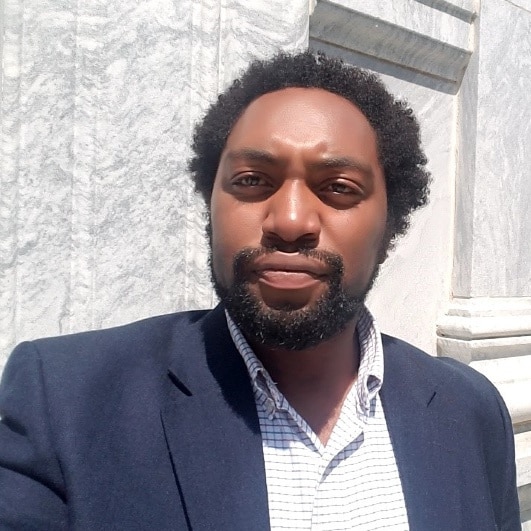
Vincent Willis is an Assistant Professor of Interdisciplinary Social Sciences in New College with an appointment in Gender and Race Studies at the University of Alabama. He earned his Ph.D. in Educational History from Emory University, a MA in African and African American Studies from the Ohio State University, and a BA in African American Studies from Morehouse College. His work centers the historical ideas and actions of Black youth to operationalize a more inclusive concept of educational equality. Additionally, his work investigates the consequences of educational policy—federal and local—operating unapologetically oppositional for decades to over-resource white schools and grossly underfund black schools and opposing the improvements black youth demanded. His forthcoming book, Audacious Agitation: Black Youth and the Uncompromising Commitment to Equal Education (under contract with the University of Georgia Press) along with peer-reviewed articles illustrate how the historical advocacy of Black youth represent their refusal to envision democracy as merely an abstraction. Instead, Black youth applied those ideals to their lived experiences as public-school students with hope of making public education more democratic. Dr. Willis’ research agenda reflects a commitment to understanding the nuances of educational equality from the perspective of marginalized communities that intend to have their ideas and actions shape educational policy.
Exhaustive Defiance: Black Youth and the Persistent Quest to Democratizing Extracurricular Activities in Public Schools, 1964-1975
This project aims to (re)construct a history of competing philosophies about the right to participate in extracurricular activities during the early phases of desegregation. Despite federal involvement, implementing deracialized extracurricular activities were arduous. Race-based practices were not annihilated by federal regulations nor did those directives alleviate the need for black youth to advocate on their own behalf for full participation in public schools. Therefore, we need a critical analysis on racialized practices that endured after race-based schooling was rule unconstitutional.
The history of extracurricular activities in public schools, particularly in the South, reveals that implementation has been racialized, classed and gendered (N. G. Adams and Adams 2018). Prior to Brown, black students were protected at black schools from the brunt of racialized practices (Walker 1996). Indeed, being able to participate in all school practices factored into several black students’ decision to remain at their black school instead of desegregating white schools. Black students at segregated black schools learned that a quality academic experience was a holistic endeavor. They could not reconcile that their white counterparts were deserving of superior academic opportunities no more than they could accept they were innately incapable of participating in all extracurricular activities. The summation of extracurricular activities during Freedom of Choice lies within black students’ refusal to accept restrictions and whites’ disinclination to see them as co-participants. Consequently, I argue we need to view this oppositional history through a theoretical lens that captures the thorny and auspicious actions that resulted from the strange relationship between defiance among black youth and whites’ refusal to re-conceptualize educational equality through the lens of participating in extracurricular activities. Using archival research, oral history and Georgia as a case study site, this project investigates how extracurricular activities were implemented and how black students responded to racialized practices. This work challenges the unidirectional narrative that presents extracurricular activities as a racial unifier around a common cause by elevating the various ways sports and other social school activities deepened divisions along racial lines.
Sharon Wolf, University of Pennsylvania
Sharon Wolf is an Assistant Professor in Human Development and Quantitative Methods at the University of Pennsylvania’s Graduate School of Education. Trained as an applied developmental psychologist, she studies how young children’s social environments shape their development, and how early childhood educational interventions can promote development and reduce inequalities. Prior to joining the faculty at Penn, Sharon was a postdoctoral research scientist at the Global TIES for Children research center at New York University and a National Poverty Fellow with the Institute for Research on Poverty at the University of Wisconsin-Madison, where she was in residence at the US Department of Health and Human Services. Sharon is the recipient of the Society for Educational Effectiveness (SREE) Early Career Award, the Jacobs Foundation Early Career Research Fellowship, and the AERA-SRCD Early Career Fellow in Early Childhood Education and Development. She received her Ph.D. in 2014 in Applied Psychology with a concentration in Quantitative Analysis from New York University.
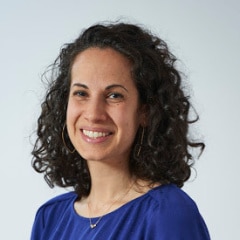
Developing Culturally-Relevant Measures of Early Childhood Educational Quality in Sub-Saharan Africa
Early childhood education (ECE) programs are expanding rapidly across sub-Saharan Africa, the global region with the largest number of children living in extreme poverty. But the quality of these programs, and their effectiveness when implemented at scale, remains unclear. Defining quality is not simple, as learning environments are shaped by cultural values and societal socio-demographics. This study will broaden conceptualizations and metrics of classroom quality by examining if and how African educators foster children’s development in ways that are culturally-adaptive but not included in current definitions of quality. The proposal uses mixed methods by: (1) examining what early childhood educators in three African countries (Ghana, Cote d’Ivoire, Tanzania) think are the key elements of ECE quality(interviews and focus groups), (2) creating a supplemental classroom observation tool based on the commonalities, and(3) applying the tool to an existing dataset of videos of Ghanaian ECE classrooms linked with child assessment data over one school-year. The videos are already coded with an existing observation tool, allowing for an examination of the new tool’s additional (or lack of) predictive power in explaining child outcomes. Results will expand current conceptualizations of quality and inform teacher professional development programs in the region and globally.
